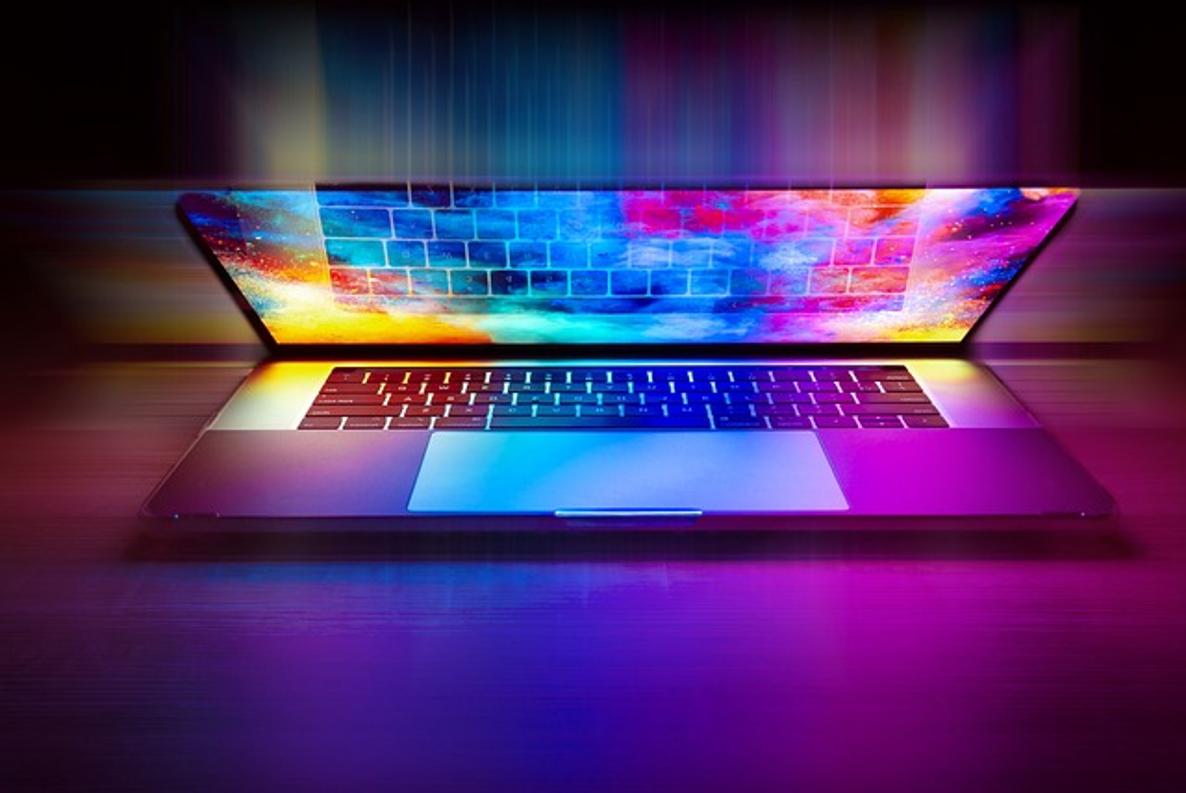MacBook vs Windows Laptop: A Comprehensive Comparison for 2024
Introduction
Choosing between a MacBook and a Windows laptop can be a challenging decision, especially as both platforms offer unique advantages. This comprehensive comparison will provide a detailed analysis to help you make an informed decision in 2024. We will explore key areas such as design and build quality, performance, operating systems, software compatibility, battery life, pricing, customer support, and security features. By the end of this guide, you’ll have a clear understanding of which laptop better suits your needs and preferences.

Design and Build Quality
Design and build quality can significantly impact user satisfaction and longevity of the device. MacBooks are renowned for their premium aluminum unibody design, which gives them a sleek and professional look. The build quality is sturdy, with a focus on minimalism. Apple has consistently focused on creating a seamless blend of form and function, resulting in a stylish, yet durable product.
On the other hand, Windows laptops offer a wider range of designs, catering to various tastes and budgets. Manufacturers like Dell, HP, and Lenovo provide options from rugged and functional to ultra-thin and lightweight models. While some premium Windows laptops can match the MacBook in terms of aesthetics and build quality, there are also more affordable options with less emphasis on appearance.
Overall, your choice between a MacBook and a Windows laptop may largely depend on your preference for design, whether you prioritize the sleek and uniform look of a MacBook or the diverse options available in Windows laptops.
Performance and Hardware
Performance is a critical factor for anyone considering a laptop, whether for professional tasks, gaming, or everyday use. MacBooks are equipped with Apple's proprietary M1 and M2 chips, which offer impressive speed and efficiency. These chips optimize performance and energy consumption, making MacBooks adept at handling heavy workloads, creative software, and media editing.
In contrast, Windows laptops come with a variety of processors from Intel and AMD. This offers a range of performance options, from budget-friendly Intel i3s to high-end i9s and Ryzen 9s. High-performance models excel at gaming, 3D rendering, and complex computations, giving them an edge for users who require powerful hardware.
Choosing between the two will depend on your specific needs. If you seek a streamlined, consistent performance with optimal energy efficiency, a MacBook may appeal to you. Meanwhile, if you require high customization and raw power with varied performance options, a Windows laptop stands out.
Operating Systems: macOS vs Windows
macOS and Windows are fundamentally different in user experience and functionality. macOS, exclusive to MacBooks, is known for its clean interface, ease of use, and seamless integration with other Apple products. The OS is optimized for efficiency and security, making it a reliable choice for users invested in the Apple ecosystem.
Windows, with its latest version Windows 11, offers flexibility and a high degree of customization. Its user interface may seem more complex compared to macOS, but it provides greater control over system settings and preferences. Windows also supports a broad spectrum of software, particularly in the enterprise and gaming sectors.
Your preference for one operating system over the other will depend on your user experience needs and the specific software applications you rely on.

Software Compatibility
When it comes to software compatibility, the differences between MacBook and Windows laptops are pronounced. MacBooks excel in creative industries, with software like Final Cut Pro, Logic Pro, and other macOS-exclusive applications catering to media professionals.
Windows laptops have the upper hand in compatibility with a wider range of software applications, especially in the business world. Microsoft’s Office Suite, extensive enterprise software, and a broader selection of third-party applications run more seamlessly on Windows. Furthermore, Windows supports most modern and legacy gaming platforms, making it a preferable choice for gamers.
Consider what software you will primarily use to guide your decision between a MacBook or a Windows laptop.

Battery Life and Portability
Battery life and portability are crucial for users who work on the go. MacBooks have long been praised for their superior battery life, thanks in part to the efficiency of Apple’s M1 and M2 chips. Users can often expect up to 17-20 hours of battery life on recent models under regular usage.
Windows laptops, however, show considerable variance in battery longevity and portability. Top-tier models like the Dell XPS and Microsoft Surface laptops offer competitive battery life, but many mid-range and budget models fall short in this department. The weight and size of Windows laptops also vary more, providing choices for ultra-portables and larger, more powerful machines.
If you prioritize long battery life and lightweight design, a MacBook might be the more compelling option. Conversely, if you need a range of sizes and battery capacities to choose from, a Windows laptop could be a better fit.
Pricing and Value for Money
Pricing is often a decisive factor. MacBooks generally come with a higher price tag, reflecting their premium build, performance, and brand status. The initial investment is high, but the longevity and robust resale value can balance the cost over time.
Windows laptops, however, offer a broader range of price points. From budget models to high-end gaming machines, there’s a Windows laptop for every budget. This makes Windows laptops more accessible for those not willing or able to make a substantial initial investment.
When evaluating the value for money, consider not just the upfront cost but also the longevity, performance, and any additional costs for software and accessories.
Customer Support and Warranty
Customer support and warranty services are essential considerations for any hardware purchase. Apple is known for its excellent customer support, including the well-regarded AppleCare program, which offers extended warranties and coverage for repairs. The in-store Genius Bar provides personalized support and repair services.
Windows laptops, depending on the manufacturer, have varied levels of customer support. Brands like Dell and HP offer comprehensive support and warranty services, while others may not match Apple’s consistency.
Evaluate your comfort with the support infrastructure when choosing between a MacBook and a Windows laptop, especially if you anticipate needing assistance or having to make repairs.
Security Features
Security is a priority for all digital users, and both macOS and Windows have made significant strides. MacBooks are known for their robust security features, including secure boot, the Apple T2 security chip, and FileVault encryption. Apple’s ecosystem also benefits from being less targeted by malware in general.
Windows has improved its security features dramatically with Windows 11, introducing new layers of security protocols, including Secure Boot, TPM 2.0, and BitLocker encryption. However, due to the higher number of Windows users, it remains a more common target for malware and viruses.
In conclusion, consider what level of security and which features best meet your needs. Both platforms offer strong security, but their approaches and risks differ.
Conclusion
When deciding between a MacBook and a Windows laptop, it ultimately comes down to personal preference and specific needs. MacBooks offer a sleek design, seamless performance, and strong security, excellent for creative professionals and those already in the Apple ecosystem. Windows laptops provide greater variety, customizable options, and wider software compatibility, making them suitable for a diverse range of users, including gamers and business professionals. Evaluate your priorities across the discussed factors to choose the best laptop for you.
Frequently Asked Questions
Which is better for professional use, MacBook or Windows laptop?
It depends on the profession. Creative fields tend to favor MacBooks for their software offerings and performance efficiency, while business and gaming professionals might prefer the versatility and power of Windows laptops.
Are Windows laptops more customizable than MacBooks?
Yes, Windows laptops generally offer more customization in terms of hardware upgrades and software flexibility compared to MacBooks.
How do MacBooks and Windows laptops compare in terms of gaming performance?
Windows laptops typically outperform MacBooks in gaming due to wider game compatibility and the ability to equip high-end graphics cards and processors tailored for gaming.



